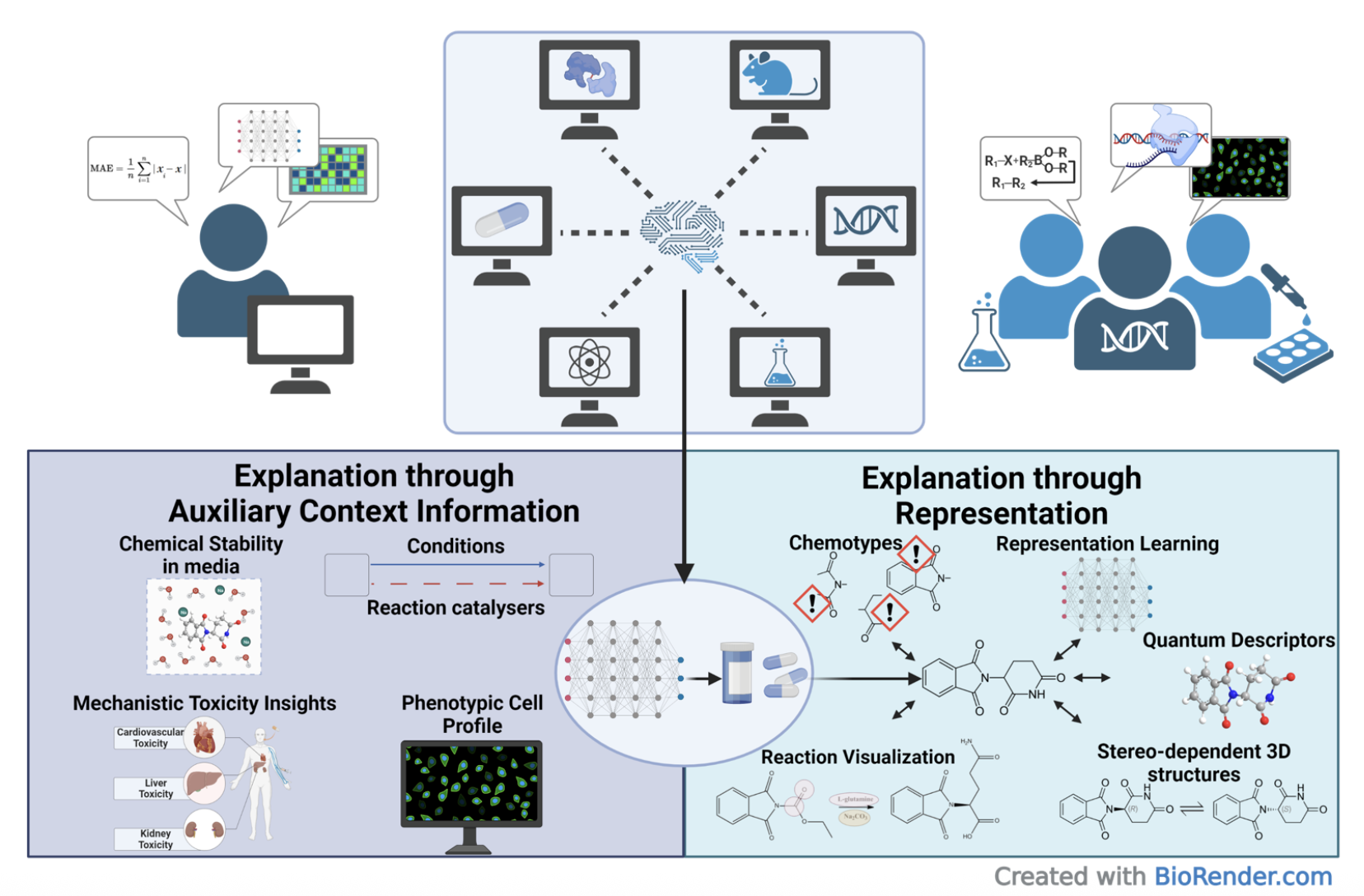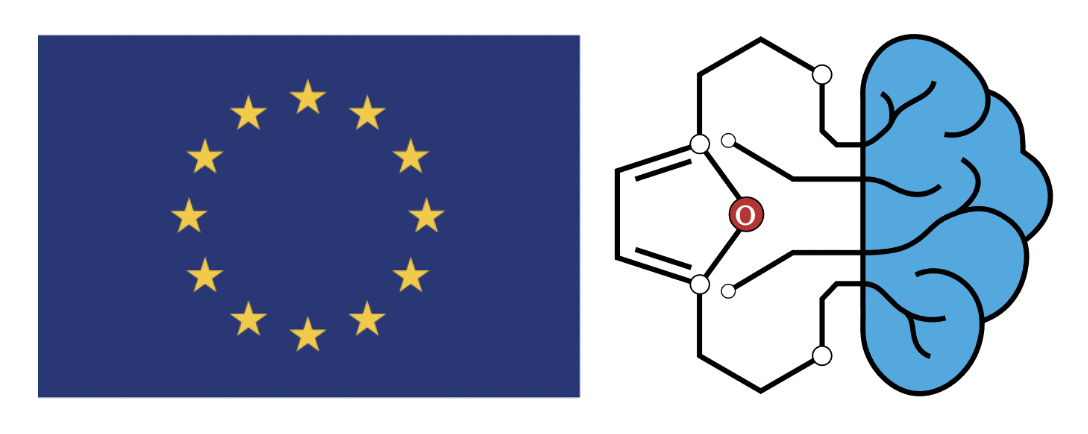The AiChemist project aims to develop and benchmark representation learning approaches, addressing their accuracy and explainability, using public and in-house data. We will also organise QSAR2027. Follow us on LinkedIn and BlueSky! See publications featuring the project's results on our Google Scholar page.
Optimising biological activity and ADME properties, while minimising toxicity, are objectives when developing new compounds. Advanced machine learning is indispensable to this process. Traditional machine learning (ML) methods provide reliable predictions though only for compounds similar to the training set, thus defining their applicability domain (AD). Emerging representation learning approaches can efficiently approximate the physical interactions of molecules with an accuracy comparable to physics-based methods in only fractions of time. Models based on these representations should have much larger ADs due to pre-training on large chemical sets of theoretical values. AiChemist will develop and benchmark representation learning approaches, addressing their accuracy and ADs, using public and in-house data for endpoints ranging from chemical reactions to toxicity. While explainable AI (XAI) methods are actively developing in the ML community, there is a gap with their use in chemistry, i.e. there is a need to translate their results to the end users, chemists and regulatory bodies.

AiChemist employs 14 Doctoral Candidates (DCs), who are working towards achieving the project's global aims through highly interconnected individual research projects. Since the research program is tightly coupled with target users - large companies, regulatory agencies and SMEs - it provides a clear path for technology transfer from academia to industry. AiChemist will provide structured training to its DCs through a combination of online courses and schools, strengthening European innovation capacity in the education of specialists in AI methods. This project is a Horizon Europe (HORIZON) Marie Skłodowska-Curie Actions Doctoral Network (MSCA-DN), funded by the European Union’s Horizon research and innovation programme under grant agreement No 101120466.

